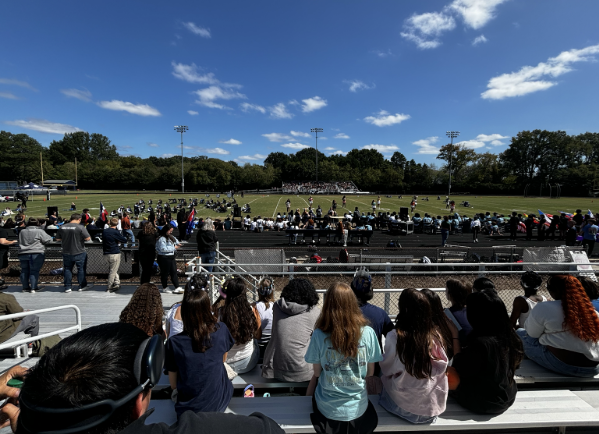Fighting for female empowerment
Crusaders of female empowerment, sophomores Katie Hockar and Megan Lochen were the student sponsors of Women’s Empowerment Club. When the club was rejected, students and faculty questioned if the grounds it were denied on were valid.
November 28, 2015
In the living organism that is high school, it is easy to feel like you are never in control. With assessments, tryouts and auditions in charge of your high school career, students are always being looked at under a microscope. Clubs are the place students can go and be free of the constant critiques that come with being a high school student. Clubs are a great way to explore subjects and areas students are passionate about and are open to everyone with no restrictions. One club that was rejected this year was Women’s Empowerment Club, advised by Mrs. Brianna Brown and sponsored by sophomores Katie Hockar and Megan Lochen. The goal of Women’s Empowerment Club was to inform and educate students about the issues of the modern woman in American society and allow a supportive environment for discussion of women’s issues. The reason given for the club being rejected was that it had no connection to a North Carolina Standard Course of Study, the most common reason for rejecting clubs this year.
With clubs like Video Game Club and Chess Club, what administration defines as curriculum based is under question. When asked if advisor Mrs. Brown agrees with the reason for denial she said, “No, Women’s Empowerment Club is obviously related to the curriculum, especially standards and skills taught in social studies and English classrooms here at Millbrook; for example Common Core asks students in Civics and Economics to evaluate principles such as equal opportunity.” Women’s issues are also discussed in IB language and literature for two units, meaning it is seen as worth discussing and teaching in multiple courses including, but not limited to, International Baccalaureate courses and standard English and social studies courses.
Clubs, aside from providing a deeper look into specific parts of subjects and topics students want to explore deeper, are supposed to be enjoyable and provide an open place for everyone. When students are denied the opportunity to have a place to be welcomed by peers with the similar passions, they are denied a part of their high school experience. Clubs were intended to create a place for everyone to have access to, where they can freely learn about their passions with their peers; every student deserves that. Administration should not be allowed to be selective about what passion a student has is worthy of being a club; those passions should be considered along with curriculum connection. Clubs allow students to be excited about learning which can encourage them to stay in school and be successful.
By declining Women’s Empowerment Club administration sends a message to all the students that the promotion of women’s rights and awareness of issues affecting women are not important enough to become a club. With young minds being influenced by media, peers and other outside forces, students feel the impact of that message, especially young girls. With teenagers and all the changes that come with being one, young girls need to be told their opinions and voices are important and administration needs to take responsibility for that. Sophomore Katie Hockar shared her reaction about the club being rejected: “It felt like we had put in so much time and planning and then to be told that we could not be a ‘real club’ was really discouraging.”
Despite all the obstacles, Women’s Empowerment Club is still meeting every Wednesday in room 233 and will be trying again next year to gain club status. A few other clubs that were rejected were Relay for Life, Conspiracy Club and Natural Hair Living Club. The students and faculty are calling for change in how clubs are chosen. Mrs. Brown shares what change she wants to see: “I would ensure standards were applied equally to all student organizations.” Students are eager to express themselves and share their passions with all peers with no restrictions. Millbrook should not be restraining this, but encouraging it.












